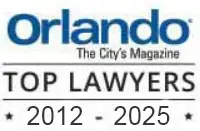Damage awards can range dramatically in personal injury settlements involving motor vehicle accidents. “Damage” refers to the amount of money you are awarded as the “plaintiff,” or injured party.
While there are countless elements to every car or truck accident case, five prevalent factors in a personal injury settlement tend to either increase or decrease the amount of damages you may recover.
Speak with an experienced Florida attorney at our firm today.
Call 855-Kramer-Now (855-572-6376).
1. Liability: Who Is at Fault for the Accident?
Proving liability is key to obtaining a fair settlement. Without assigning liability, you cannot recover money or damages from responsible parties.
Most personal injury cases are based on the doctrine of negligence. A person must be found negligent, which means they acted in a way that ignored their duty as a driver to act safely and which ultimately caused harm. Third and fourth parties may even be found to be on the hook for damages in a car accident case.
Establishing liability therefore allows your attorney to take this evidence to the liable party’s insurance company and begin working out a settlement. Presenting that liability in a way that will sway the insurance adjuster is essential to obtaining an appropriate settlement.
2. Comparative Negligence
Were you responsible, at least in part, for the accident that led to your injuries? Many times the person originally alleged to be the “at-fault” party shoots back and claims that you are also to blame.
Maybe you were texting, or you stopped too abruptly – which in part contributed to the injuries you suffered. When this happens, Florida follows a “pure comparative negligence rule.” If you are found to share liability for the accident, then any award that you would recover is reduced by your percentage of responsibility for causing the crash.
If settled outside of court, an insurance adjuster may try to raise your percentage. This is a good example of why it is important to have a knowledgeable attorney in your corner who is prepared to advocate for you.
If the case goes to court, the jury would apportion the damages between the drivers. Again, properly framing your case before the court is a personal injury attorney’s strength.
3. Permanent Injury
Under Florida law, a car accident victim must have suffered “permanent injury” before they can pursue non-economic damages such as pain and suffering.
This “permanent injury threshold” is explained in Florida statute §627.737(2). To be eligible to recover damages for pain, suffering, mental anguish and inconvenience, you must be able to prove
- the injury is permanent, or
- you have sustained significant and permanent loss of an important bodily function, or
- you sustained significant and permanent scarring or disfigurement, or
- death
This threshold applies to Florida car and truck accidents, but not to motorcycle accidents.
Because the amount of compensation can increase tremendously, showing that the injury you suffered is permanent or you have sustained a long-term disability are critical factors in a personal injury settlement. But be cautious – while you may think that your case fits the criteria of permanent injury, you may be mistaken. Our attorneys ensure our clients understand this critical law and how it affects their case. You also must not assume that the insurance adjuster will point this out to you.
4. Economic Damages
These are the quantifiable damages such as medical expenses (past and future), loss of past income and future earning capacity, and the cost of automobile repair. Other economic damages might include medical devices, mileage to and from doctor’s appointments or alternate transportation.
The dollar amounts are generally easy to gauge and present to the court. They serve to reimburse the injured for expenses associate with the accident. It is important that you do not neglect or miss any possible expenses that may, over time, turn out to be significant.
Economic damages do not take into account pain and suffering, and loss of consortium.
5. Non-Economic Damages
Beyond itemizing economic damages, in a serious personal injury case an injured may sue for other types of compensation known as non-economic damages.
These damages are extremely important to the personal injury case valuation. The losses are more abstract and generally compensate for the physical and emotional hardship, anguish and privation endured by the injured—as well as their spouse and loved ones
The two most common non-economic factors in a personal injury settlement include pain and suffering and loss of consortium.
Pain and suffering
As the result of negligence or wrongful act, an injury victim can claim damages for pain and suffering, which means receiving compensation for physical pain and emotional distress. Emotional distress is refers to the frustration, fear, anger and loss of enjoyment of life associated with suffering from a crippling injury.
When determining an award for pain and suffering and emotional trauma, the jury is allowed to consider the extent of the injury. They will take into account the evidence presented in court that substantiates pain and suffering. The level of physical discomfort and suffering the person will endure long-term will also be considered.
Loss of consortium
Devastating personal injury affects family members deeply. In many of these cases, loved ones may file a lawsuit seeking damages for loss of consortium.
A spouse of an injured can seek damages for the loss of the emotional and intangible elements of marriage, such as loss of love and affection, emotional support and comfort, companionship, care and sexual intimacy. Less commonly but just as meaningfully, a parent or child may be profoundly affected by the loss of their mother, father, son or daughter in which loss of love and companionship or care affords the right to sue for damages.
Non-economic damages are awarded on a case-by-case basis. The method or guidelines for computing an award for pain and suffering or loss of consortium is not precise. Still, the law is designed to fully compensate personal injury victims for pain and suffering endured.
These and other factors, right down to the attorney you choose, play a part in negotiating and maximizing the settlement offer in an injury case.
Questions about the possible damages you may be entitled to?
Contact TK Law today. An experienced personal injury lawyer will be happy to give you a good idea of what to expect in your case.
Our diverse law firm is here for families for a lifetime, and not just one incident. We are here to help you tackle any legal issues you may face.
Speak with an experienced Florida attorney at our firm today.
Call 855-Kramer-Now (855-572-6376).











